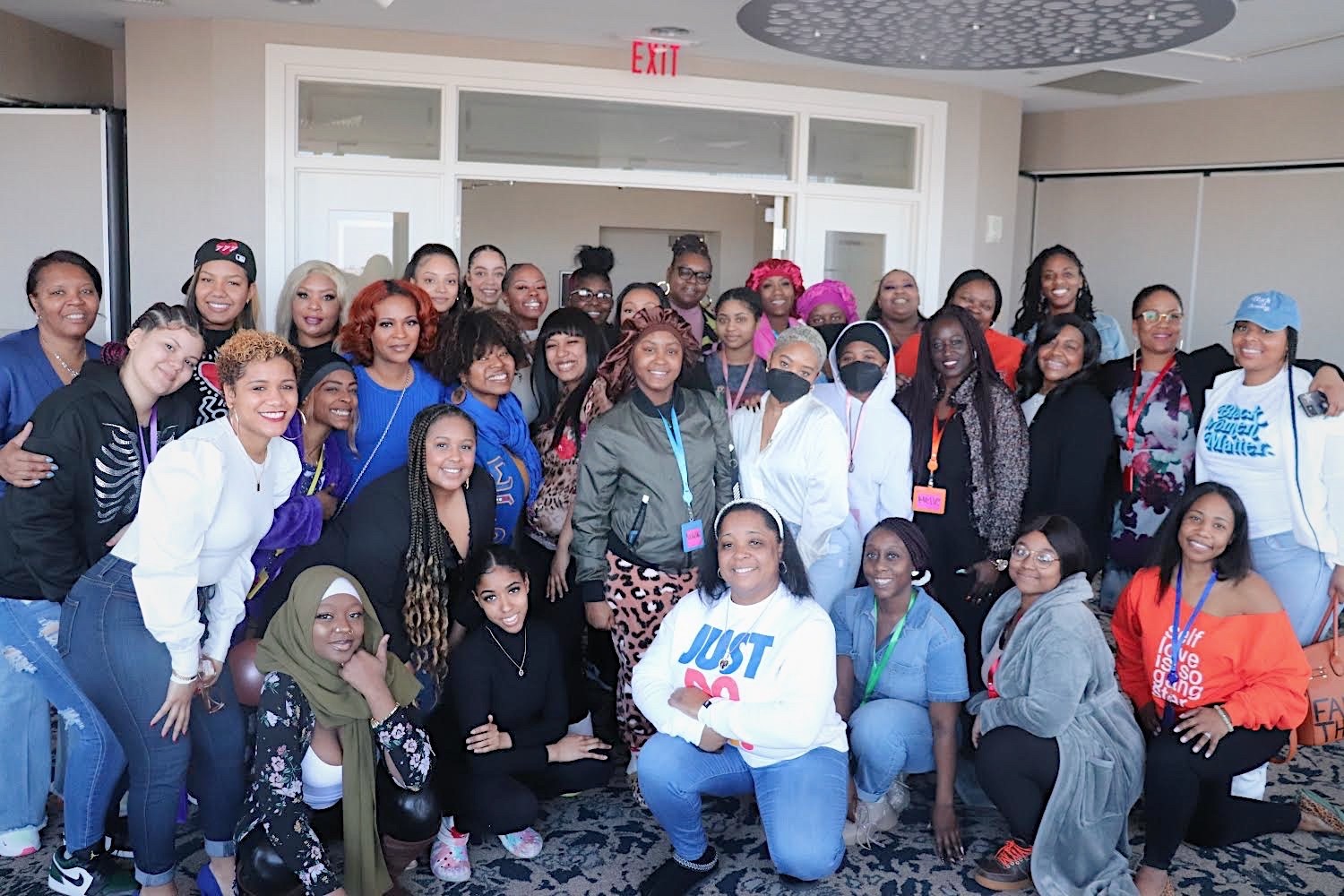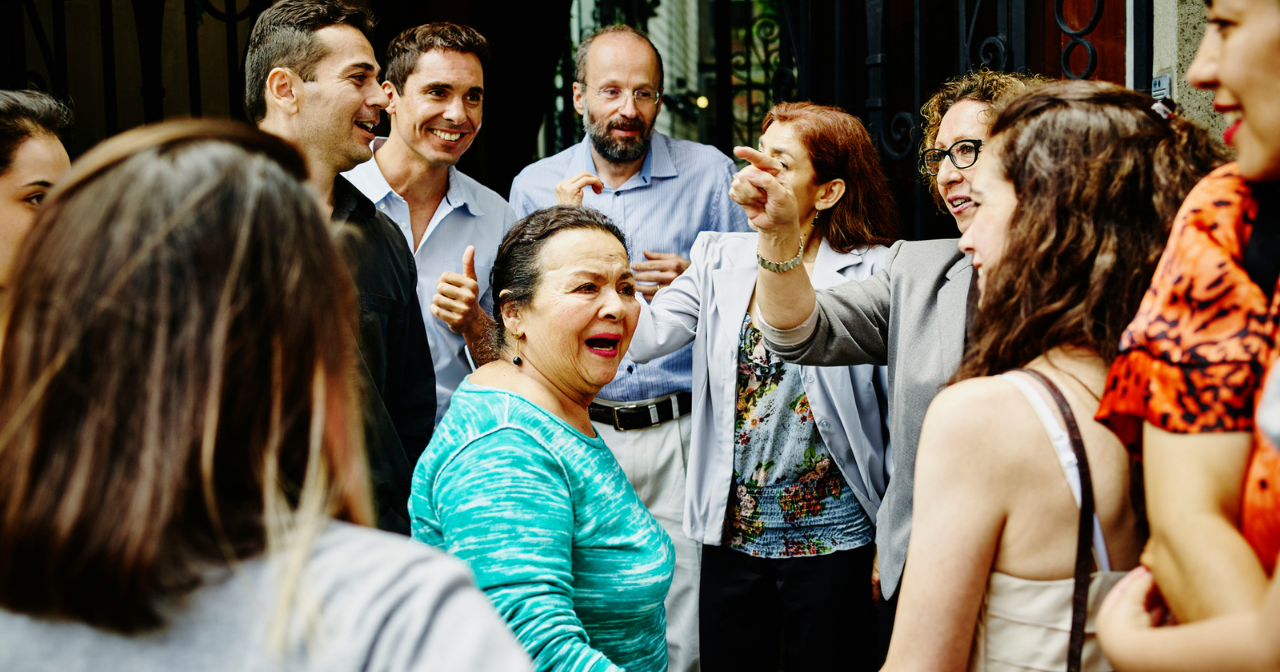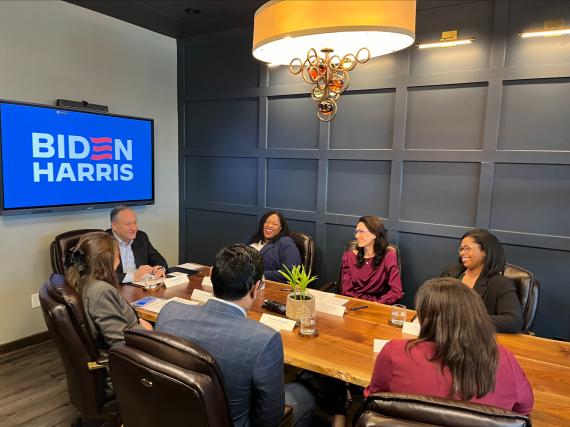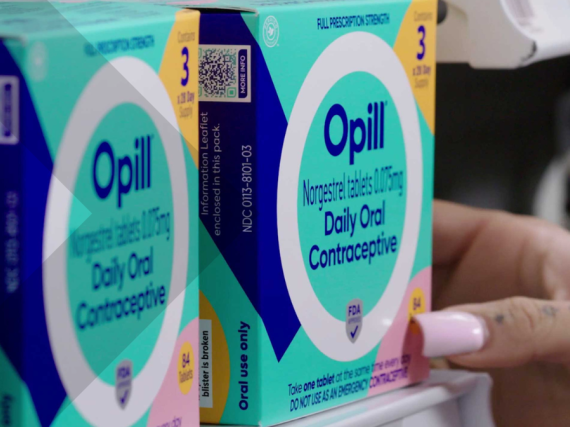Challenging Challenges to Improve Community RWB
In early 2020, we selected seven teams from across the US and its territories to partner with us in implementing our reproductive well-being work within their communities. Reproductive well-being (RWB) means that all people have the information, services, and support they need to have control over their bodies and to make their own decisions related to sexuality and reproduction throughout their lives.
All teams are now in the beginning of their final year of the initiative but are at different stages of their work. We featured each team in a newsletter last year as they started out, but now will hear from them on how they’re becoming more impactful and effective in their communities as well as what challenges have come up and how they’re planning to surmount them.
Read about the progress of our Nebraska, Virginia, and Michigan teams.
Syracuse, New York

A long history of racist policies has led to disinvestment in Syracuse. The city is ranked number one in the country for rate of concentrated poverty among Black and Latino people, and about half of children live in poverty. However, the community is deeply committed to improving these and other metrics, including reproductive health.
Can you tell us more about your work to center the voices and lift the experiences of young Black and Latina women living in Syracuse?
Our multi-sectoral coalition’s 2022 Blueprint for action items include: Diversity, Equity, and Inclusion Training & Capacity building for stakeholders, improving communication and opportunities to convene, increasing opportunities for Black and Latina women, and advocating to have the Youth Risk Behavioral Survey administered across all middle and high school students in our district.
One of our strategies for advancing the local movement around reproductive well-being is centering the voice of and co-designing alongside young women. Layla’s Got You is a campaign for young Black and Latinx women with judgement-free and tailored information sex, love, and relationships. The tech-driven campaign provides a chat bot named Layla as a safe and anonymous place for young women to ask questions, and ongoing social media content. In March, we hosted a wellness retreat for Black and Latina young women, age 18-25. We provided PowerPoint-free, open discussion-style sessions on mental health, reproductive well-being, Intimate Partner Violence (IPV), financial literacy, and personal branding. We also engaged participants in fun interactive sessions, referred to as “quickies.” The quickies were centered on physical interaction and included beauty tutorials, self-care, candle making, personal branding, journaling, and personal hygiene (foot soaks and yoni care). All workshops and quickies were developed for and presented by women of color. The retreat culminated in a power panel discussion featuring 12 Black woman leaders and pioneers in the Syracuse region.
Northern Mariana Islands
A US territory located in the Pacific Ocean, the Commonwealth of the Northern Mariana Islands (CNMI) has a population of 53,883 people, many of whom must rely on publicly funded services. However, despite past success reducing teen births and sexual activity, recently young people have expressed privacy concerns that have stopped them from going to a local clinic to obtain birth control or STI testing.
After relatively low rates of COVID since April 2020, your community has recently seen a spike in cases. Has that created any challenges in your work? If so, do you know yet how you’re going to adapt your plans to accommodate lockdown measures?
Challenges created by COVID-19 permeated throughout the small CNMI community, which necessitated stringent lockdowns and protocols to keep the virus from spreading. Because of this, our team was unable to convene a community advisory board, compromised of various government and private agencies throughout the CNMI. This board would provide guidance and expertise to the Power to Decide initiative and help implement the actions steps identified during the needs assessment process.
One of the action steps identified during the needs assessment process was training on “One Key Question” (OKQ) geared towards the health center and public school system staff. Fortunately, OKQ offers online training which allowed for the team and identified individuals to complete the training, despite the challenges due to COVID-19. All participants have started the training and are on course to complete it.
We plan to follow-up the OKQ training by convening an in-person OKQ training review to identify needs, resources, and support that will help agencies implement OKQ effectively.
Travis County, Texas
Travis County, which includes Austin, has a population of 1.3 million and a particularly diverse population of young people. But those living in smaller towns outside Austin and its suburbs face barriers in transportation and access to reproductive health services.
The state of Texas has seen quite a lot of upheaval since the passage of SB-8, a harmful law that bans abortion care after six weeks. Has this caused you to change the focus of your project or the way in which you’re trying to reach your goal of expanding reproductive well-being for young people?
As a result of the passage of SB-8 and other Texas state leadership efforts to limit the rights of our LGBTQ+ communities, our team made a conscious decision to shift content at our 2022 People’s Adolescent Health Symposium away from policy and advocacy to proactive content that would support our community in these challenging times. Topics included social media and adolescent health; neurodiversity and mental health; healing together; discussing sexual health and healthy relationships with youth; and health care education 101. At the provider level, People’s Community Clinic enhanced patient awareness related to new challenges in accessing care and doubled the number of contraception kits provided to patients.
Oklahoma County, Oklahoma
Oklahoma has the third highest teen birth rate in the nation, and Oklahoma County has the highest number of teen births in the state. Local government and local nonprofits are coalescing to improve sexual health and reduce teen pregnancy among young people.
You’re working closely with other organizations in the hopes of impacting state policy and mandating that all young people—K-12—receive health education in schools as well as in other settings such as foster care and the juvenile system. Has it been difficult to build relationships in an increasingly fractured and combative political system? What have you found to be most effective when educating policymakers about reproductive well-being?
Thrive, Inc. works with several organizations to educate the community about how certain legislation and policies will impact youth and families in our community. Most recently, Oklahoma legislators introduced a bill to require libraries to provide copies of library records to parents. This type of legislation could discourage BIPOC, 2SLGBTQ+, and other youth from accessing information that they need to make healthy decisions in a safe environment. In response, Thrive partnered with a local news station to educate the community on the potential impact of this legislation. The biggest challenge to educating policy makers and the community is that many of the views on issues that are important to us are deeply ingrained in the culture of our state. We have to be very strategic in how we craft our messages and in mobilizing people who already support our message.



